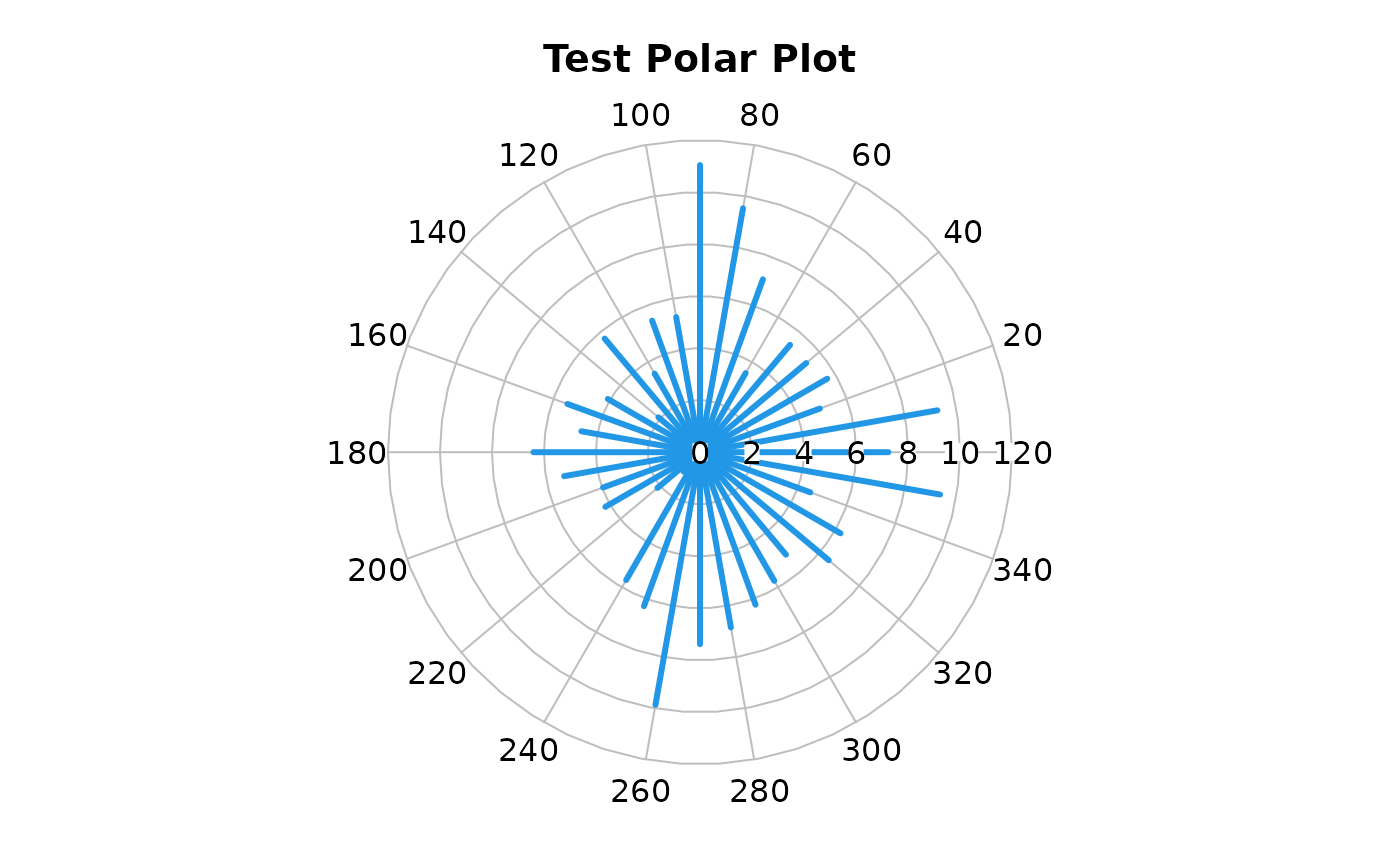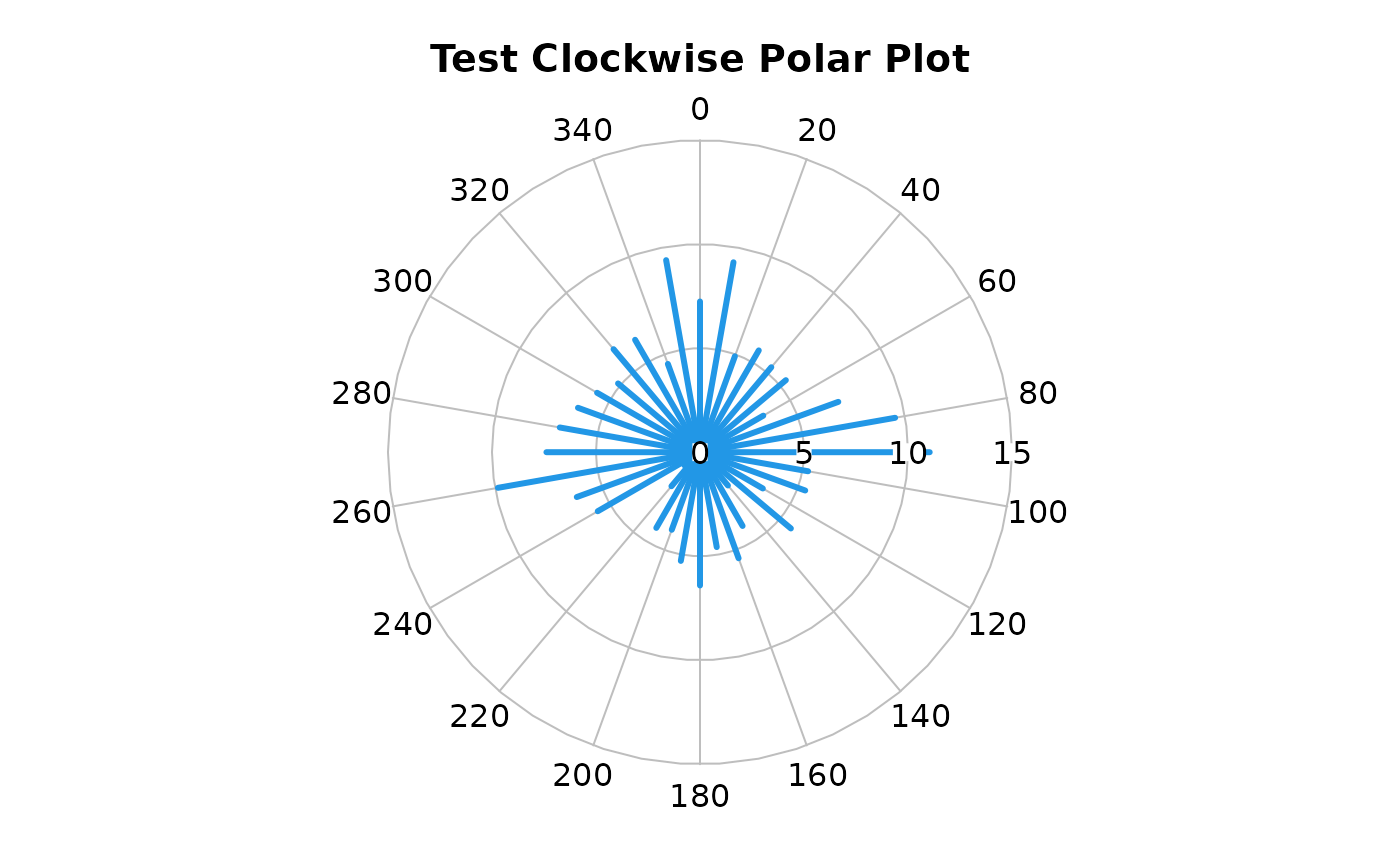Plot values on a circular grid of 0 to 360 degrees
polar.plot.Rdpolar.plot displays a plot of radial lines, symbols or a polygon centered at the midpoint of the plot frame on a 0:360 circle. Positions are interpreted as beginning at the right and moving counterclockwise unless start specifies another starting point or clockwise is TRUE.
If add=TRUE is passed as one of the additional arguments, the values will be added to the current plot. If a radial.lim argument was passed on the initial plot, it must be passed again to add values or the values will be displayed incorrectly.
Usage
polar.plot(lengths,polar.pos=NULL,labels,label.pos=NULL,
start=0,clockwise=FALSE,rp.type="r",loglen=FALSE,explab=FALSE,...)Arguments
- lengths
numeric data vector. Magnitudes will be represented as the radial positions of symbols, line ends or polygon vertices.
- polar.pos
numeric vector of positions on a 0:360 degree circle. These will be converted to radians when passed to radial.plot.
- labels
text labels to place on the periphery of the circle. This defaults to labels every 20 degrees. For no labels, pass an empty string.
- label.pos
positions of the peripheral labels in degrees
- start
The position for zero degrees on the plot in degrees.
- clockwise
Whether to increase angles clockwise rather than the default counterclockwise.
- rp.type
Whether to plot radial lines, symbols or a polygon.
- loglen
Whether to log transform the length values. Only base 10 logs are available.
- explab
Whether to use the default fixed (FALSE) or exponential (TRUE) notation for the radial labels.
- ...
additional arguments passed to radial.plot and then to plot.
Value
A list of the parameters altered by radial.plot.

